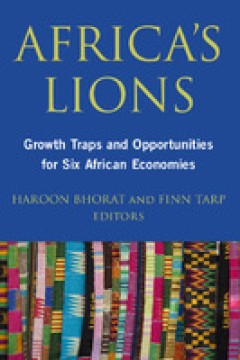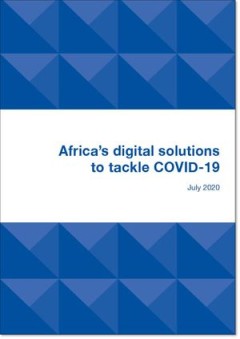Filter by

A Handbook for Wellbeing Policy-Making: History, Theory, Measurement, Impleme…
Around the world, governments are starting to directly measure the subjective wellbeing of their citizens and to use it for policy evaluation and appraisal. What would happen if a country were to move from using GDP to using subjective wellbeing as the primary metric for measuring economic and societal progress? Would policy priorities change? Would we continue to care about economic growth? Wh…
- Edition
- -
- ISBN/ISSN
- 9780191919060
- Collation
- 454 hlm
- Series Title
- -
- Call Number
- -

Africa's world trade
Are Africa's world markets really contributing to development across the continent for individuals, nations and regions? This is the key question posed by Margaret Lee in this provocative book, in which she argues that all too often the voices of African traders are obscured amid a blizzard of statistical analysis. However, it is these very voices - from those operating on the ground as formal …
- Edition
- Nordiska Afrikainstitutet
- ISBN/ISSN
- 9788855263726
- Collation
- -
- Series Title
- Africa Now
- Call Number
- -

Africa's Lions
Africa's Lions examines the economic growth experiences of six fast-growing and/or economically dominant African countries. Expert African researchers offer unique perspectives into the challenges and issues in Ethiopia, Ghana, Kenya, Mozambique, Nigeria, and South Africa. Despite a growing body of research on African economies, very little research has focused on the relationship between econo…
- Edition
- -
- ISBN/ISSN
- 9780815729501
- Collation
- -
- Series Title
- -
- Call Number
- -

Africa’s digital solutions to tackle COVID-19
African countries are using technology in many new ways to fight the coronavirus pandemic. This report highlights some of the best digital solutions and estimates the investments required to implement the technology on a wider scale. The European Investment Bank prepared this report with the support of the United Nations Development Programme and the consulting firm BearingPoint.
- Edition
- -
- ISBN/ISSN
- 9780000000681
- Collation
- -
- Series Title
- -
- Call Number
- 650

A Good Example of Peaceful Coexistence? : The Soviet Union, Austria, and Neut…
This monograph, based on newly declassified sources from Western and Russian archives as well as on communist texts about international law and neutrality, is the first English-language account of Soviet policy towards neutral yet capitalist Austria during the Cold War. In order to make neutrality a model for the West, the Kremlin presented the unique Soviet-Austrian relationship as "a good exa…
- Edition
- -
- ISBN/ISSN
- 9783700168980
- Collation
- -
- Series Title
- -
- Call Number
- -

A European Public Investment Outlook
"This outlook provides a focused assessment of the state of public capital in the major European countries and identifies areas where public investment could contribute more to stable and sustainable growth. A European Public Investment Outlook brings together contributions from a range of international authors from diverse intellectual and professional backgrounds, providing a valuable resourc…
- Edition
- -
- ISBN/ISSN
- 9781800640115
- Collation
- 224 hlm
- Series Title
- -
- Call Number
- -

A Demographic Perspective on Gender, Family and Health in Europe
family; relationships; health, parenthood
- Edition
- -
- ISBN/ISSN
- 978-3-319-72356-3
- Collation
- 303 hlm
- Series Title
- -
- Call Number
- -

Accounting and Statistical Analyses for Sustainable Development
In this Open Access publication Claudia Lemke develops a comprehensive Multi-Level Sustainable Development Index (MLSDI) that is applicable to micro, meso, and macro objects by conducting methodological and empirical research. Multi-level comparability is crucial because the Sustainable Development Goals (SDGs) at macro level can only be achieved if micro and meso objects contribute. The author…
- Edition
- -
- ISBN/ISSN
- 9783658332464
- Collation
- oer.unej.ac.id
- Series Title
- Sustainable Management, Wertschöpfung und Effizienz,
- Call Number
- -

Access to Medicines and Vaccines
This open access book is the outcome of a Global Forum on Innovation, Intellectual Property and Access to Medicines held in December 2019 at the Max Plank Instititute in Munich, organised by the South Centre and the Max Plank Institute. The academics and experts from international organisations participating have contributed chapters to this book. The book is for policy makers (in Ministries of…
- Edition
- -
- ISBN/ISSN
- 9783030831141
- Collation
- oer.unej.ac.id
- Series Title
- -
- Call Number
- Entertainment and media law

African Luxury : Aesthetics and Politics
Moving far beyond predominant views of Africa as a place to be 'saved', and even more recent celebratory formulations of it as 'rising', African Luxury: Aesthetics and Politics highlights and critically interrogates the visual and material cultures of lavish and luxurious consumption already present on the continent. Methodologically, conceptually and analytically, the collection dismantles tak…
- Edition
- -
- ISBN/ISSN
- 9781783209934
- Collation
- -
- Series Title
- -
- Call Number
- 650
 Computer Science, Information & General Works
Computer Science, Information & General Works  Philosophy & Psychology
Philosophy & Psychology  Religion
Religion  Social Sciences
Social Sciences  Language
Language  Pure Science
Pure Science  Applied Sciences
Applied Sciences  Art & Recreation
Art & Recreation  Literature
Literature  History & Geography
History & Geography